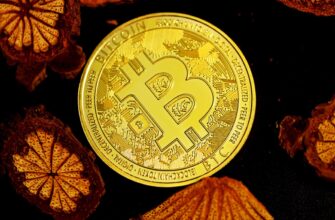The July 2023 XRP ruling in the U.S. Securities and Exchange Commission (SEC) lawsuit against Ripple Labs sent shockwaves through the cryptocurrency industry. A federal judge’s decision that XRP is **not inherently a security** when sold to the public reshaped regulatory expectations and sparked renewed debates about crypto classification. This article breaks down the ruling’s implications, key takeaways, and what it means for investors, exchanges, and the future of digital assets.nn## Background of the SEC vs. Ripple CasennIn December 2020, the SEC sued Ripple Labs, alleging the company illegally raised $1.3 billion through unregistered sales of XRP, which it claimed was a security. The SEC argued that XRP functioned like an investment contract under the **Howey Test**, a legal framework used to determine whether an asset qualifies as a security. Ripple countered that XRP serves as a currency and utility token for cross-border payments, not as an investment vehicle.nnThe case dragged on for nearly three years, with both sides filing motions and counterarguments. Key disputes included:n- Whether XRP holders “expected profits” from Ripple’s efforts (a Howey Test requirement).n- The role of Ripple’s marketing and institutional sales in influencing XRP’s value.n- The applicability of securities laws to decentralized digital assets.nn## Key Takeaways from the XRP RulingnnJudge Analisa Torres of the Southern District of New York delivered a split decision on July 13, 2023:nn1. **Institutional Sales Were Securities**: Ripple’s direct sales of XRP to institutional investors ($728 million worth) violated securities laws because buyers expected profits tied to the company’s efforts.n2. **Programmatic Sales Were Not Securities**: Automated sales of XRP on public exchanges ($757 million) did not qualify as securities because retail buyers had no direct ties to Ripple.n3. **XRP Itself Isn’t a Security**: The court clarified that XRP, as a digital token, is not inherently a security—a landmark distinction for crypto assets.nnThis partial victory for Ripple provided immediate relief to exchanges like Coinbase and Kraken, which relisted XRP within hours of the ruling.nn## Implications for the Crypto IndustrynnThe XRP ruling set critical precedents:nn- **Regulatory Clarity**: The decision challenged the SEC’s broad claims that most cryptocurrencies are securities, potentially limiting its authority over tokens with decentralized use cases.n- **Exchange Listings**: Platforms that delisted XRP due to SEC pressure quickly reinstated it, signaling renewed confidence.n- **Lawsuits in Limbo**: Ongoing cases against Coinbase, Binance, and other exchanges may lean on this ruling to argue against labeling tokens like SOL or ADA as securities.n- **Legislation Push**: Congress faces increased pressure to pass clear crypto regulations instead of relying on court interpretations.nn## What’s Next for Ripple and XRP?nnWhile the ruling was favorable, Ripple isn’t fully in the clear:n- The SEC may appeal the decision, prolonging uncertainty.n- A trial is pending to determine penalties for Ripple’s institutional sales violations.n- Ripple continues expanding its On-Demand Liquidity (ODL) service, which uses XRP for instant cross-border transactions.nnXRP’s price surged 75% post-ruling, though it remains 85% below its 2018 all-time high. Analysts suggest renewed institutional partnerships could drive long-term growth.nn## FAQ About the XRP Rulingnn### 1. Is XRP a security now?nNo. The court ruled that XRP itself is not a security, though Ripple’s direct sales to institutions were deemed investment contracts.nn### 2. Can U.S. exchanges legally list XRP?nYes. Major platforms like Coinbase, Kraken, and Gemini relisted XRP immediately after the ruling.nn### 3. Will the SEC appeal the decision?nThe SEC has hinted at an appeal, but legal experts say overturning the ruling would be challenging.nn### 4. How does this affect other cryptocurrencies?nThe decision weakens the SEC’s ability to broadly classify tokens as securities, offering hope for projects like Cardano (ADA) and Polygon (MATIC).nn### 5. What penalties does Ripple face?nRipple may pay fines for its institutional sales, but the company claims it will only settle if the court’s XRP classification remains intact.nn## Conclusion: A New Chapter for Crypto RegulationnThe XRP ruling marks a turning point in balancing innovation and investor protection. While the SEC retains oversight over certain crypto transactions, the decision underscores the need for legislative clarity. As Ripple navigates ongoing legal battles, the broader industry watches closely—aware that this case could define the future of decentralized finance.








